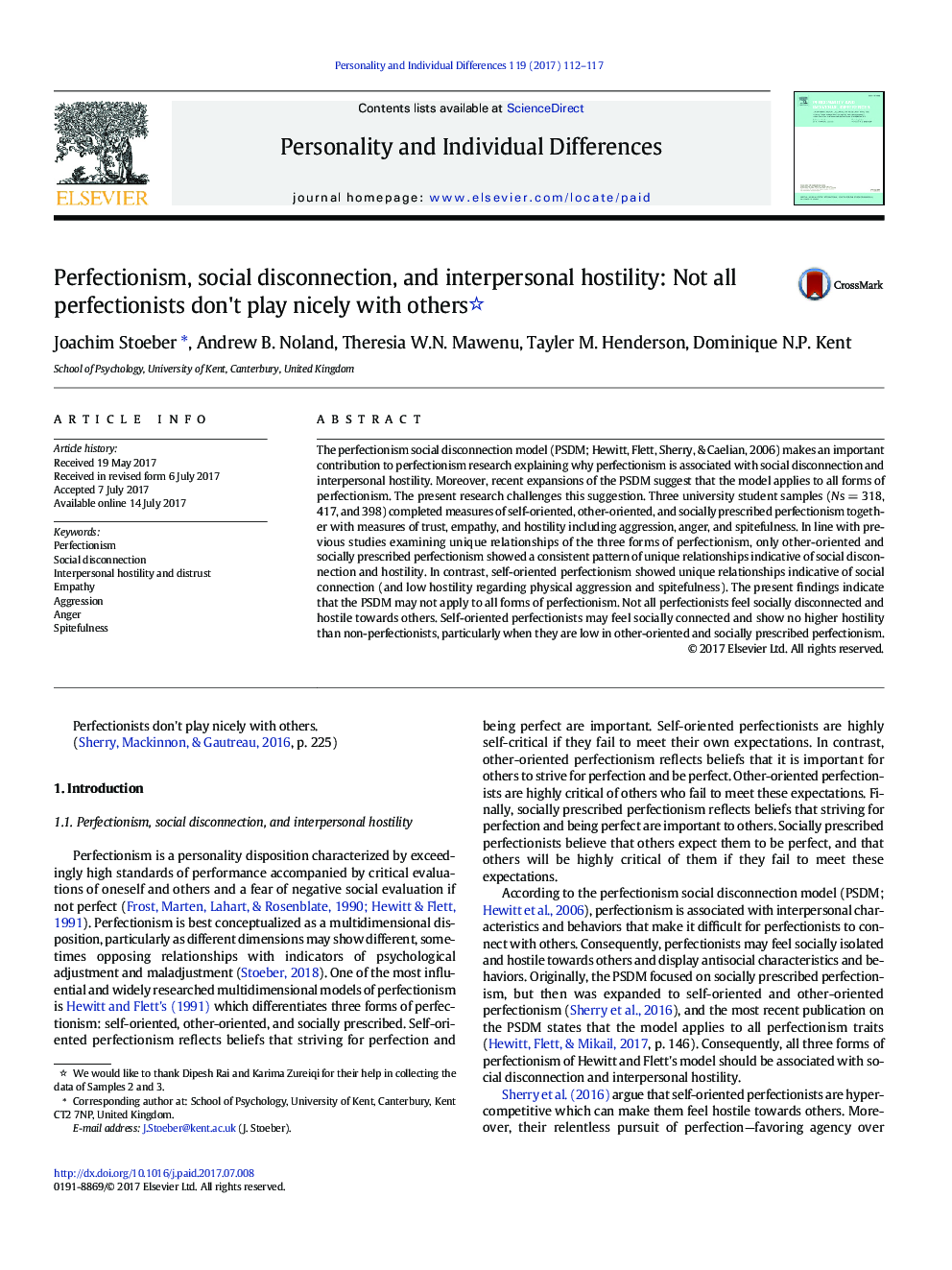| Article ID | Journal | Published Year | Pages | File Type |
|---|---|---|---|---|
| 5035663 | Personality and Individual Differences | 2017 | 6 Pages |
â¢Investigated the perfectionism social disconnection model (PSDM)â¢Examined three university student samples (Ns = 318, 417, and 398)â¢Other-oriented and socially prescribed perfectionism conformed to the PSDM.â¢Self-oriented perfectionism did not conform to the PSDM.â¢Not all perfectionists show social disconnection and interpersonal hostility.
The perfectionism social disconnection model (PSDM; Hewitt, Flett, Sherry, & Caelian, 2006) makes an important contribution to perfectionism research explaining why perfectionism is associated with social disconnection and interpersonal hostility. Moreover, recent expansions of the PSDM suggest that the model applies to all forms of perfectionism. The present research challenges this suggestion. Three university student samples (Ns = 318, 417, and 398) completed measures of self-oriented, other-oriented, and socially prescribed perfectionism together with measures of trust, empathy, and hostility including aggression, anger, and spitefulness. In line with previous studies examining unique relationships of the three forms of perfectionism, only other-oriented and socially prescribed perfectionism showed a consistent pattern of unique relationships indicative of social disconnection and hostility. In contrast, self-oriented perfectionism showed unique relationships indicative of social connection (and low hostility regarding physical aggression and spitefulness). The present findings indicate that the PSDM may not apply to all forms of perfectionism. Not all perfectionists feel socially disconnected and hostile towards others. Self-oriented perfectionists may feel socially connected and show no higher hostility than non-perfectionists, particularly when they are low in other-oriented and socially prescribed perfectionism.
